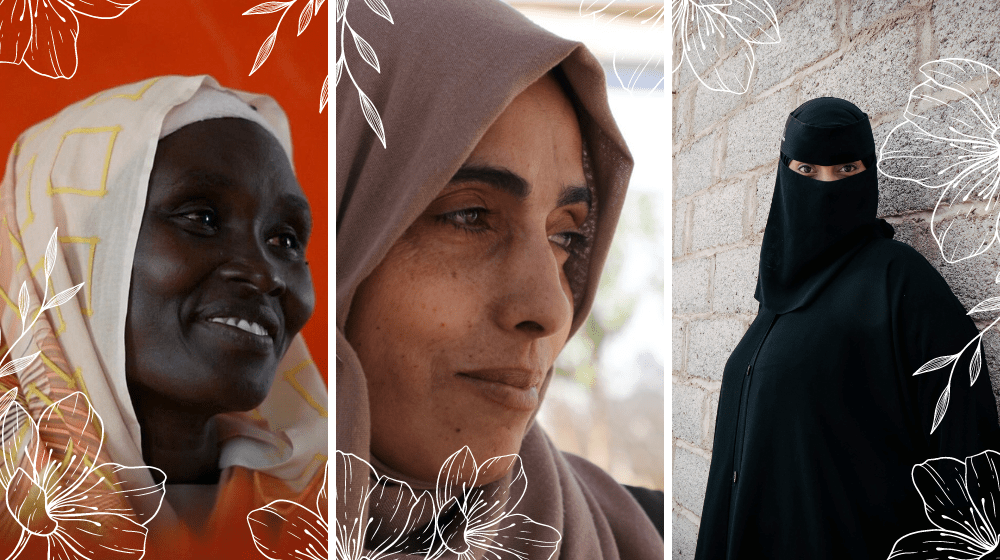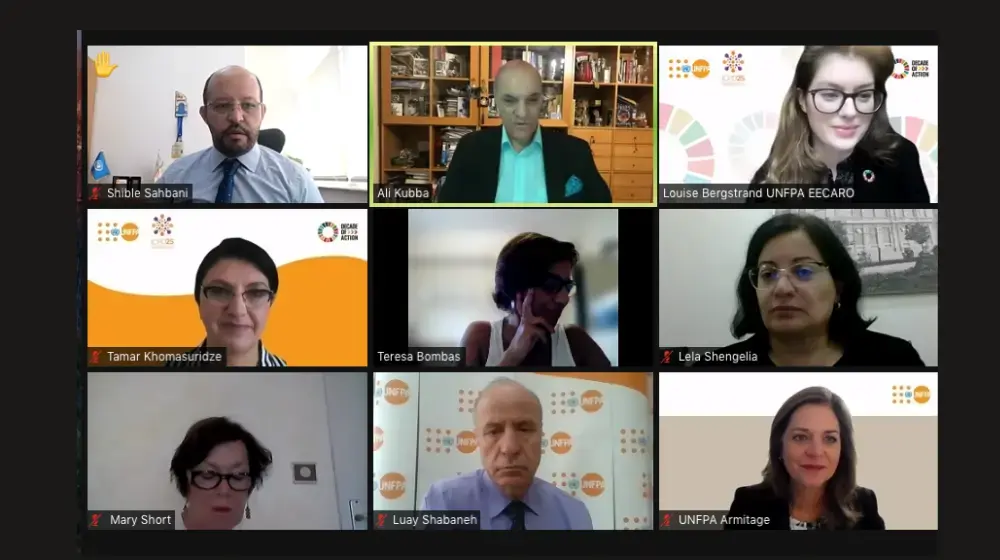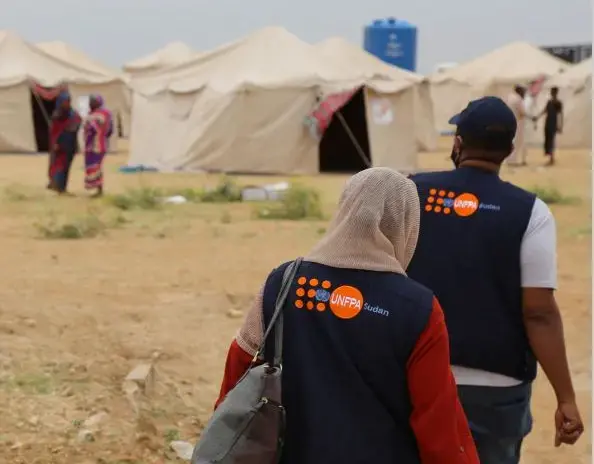“My message to women is simple: When you find that you are pregnant, get a check up,” says Aisha, a Syrian refugee who arrived in Jordan in 2013. “Afterwards, plan your families.”
Aisha attended the UNFPA-supported Family Planning Association when she became pregnant in 2014. “When I came here I had three children, all were born with disabilities,” she explains.
Doctors said the disabilities could have been due to genetic factors, insufficient supplement intake during pregnancy, or the use of certain medications while pregnant.
After being given folic acid and receiving medical support, she gave birth to two healthy children.
“They also helped me plan my family,” she says. “They gave me advice, and I didn’t get pregnant again.”
Aisha received advice from experts on contraception, childcare and parenting.
“I’ve learned many things about how to support, raise and educate my children. I didn’t know about family planning before, and I stopped having children six years ago.”
Thirty years ago in the Arab region, just one third of women were able to exercise their reproductive choices through modern contraceptives, compared with nearly half today.
Safe and voluntary access to family planning is a human right, yet many communities affected by war, crises and climate change are at risk of missing out on these crucial services.
Treating bodies, minds and lives
In Sudan, Nesma Khayrallah suffered from an obstetric fistula, a traumatic injury that can occur in a prolonged, obstructed childbirth. Without emergency action, obstructed labour can last for days, resulting in death or severe disability. The obstruction can cut off blood supply to tissues in the woman’s pelvis. When the dead tissue falls away, she is left with a hole – a fistula, in medical terms – in the birth canal, often resulting in chronic infections and incontinence.
“My husband left me. He said he wouldn’t stay with a woman with a fistula,” Nesma says.
“It was very hard. I stayed at home all the time and couldn’t attend any events,” Nesma says.
Nesma sought help from a UNFPA-supported clinic. There, she received free fistula repair surgery, psychosocial support and vocational training to help her reintegrate into society.
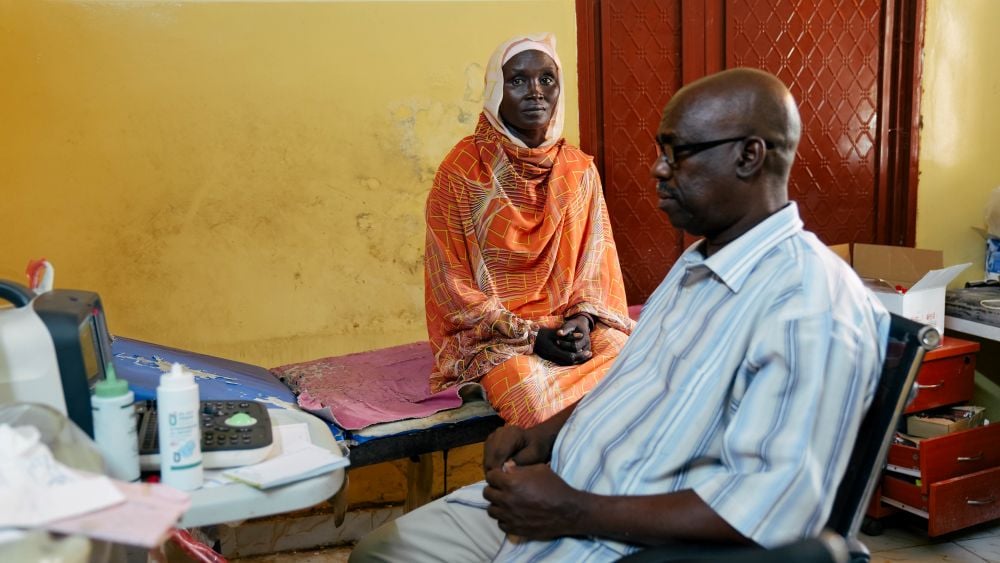
“UNFPA helped with all the travel costs. If it wasn’t for them I wouldn’t be able to get through this, and I’ve started working on my own now,” she says.
Conflict in Sudan has disrupted efforts to eliminate obstetric fistula. Still, in 2023, UNFPA was able to support fistula treatment campaigns and 49 fistula repairs, and also to aid in the training of surgeons.
UNFPA also works with governments and partners throughout the Arab region to prevent obstetric fistula from occurring by ensuring swift access to emergency obstetric care such as Cesarean sections.
Sharing skills
“I trained in midwifery because of how much I suffered during childbirth. No one explained anything to me. I didn’t have any information,” says Randa, a midwife in Yemen.
Randa received treatment for an obstetric fistula at the UNFPA-supported Al Thawarah Hospital in Sana’a. She now wants to help other women give birth safely.
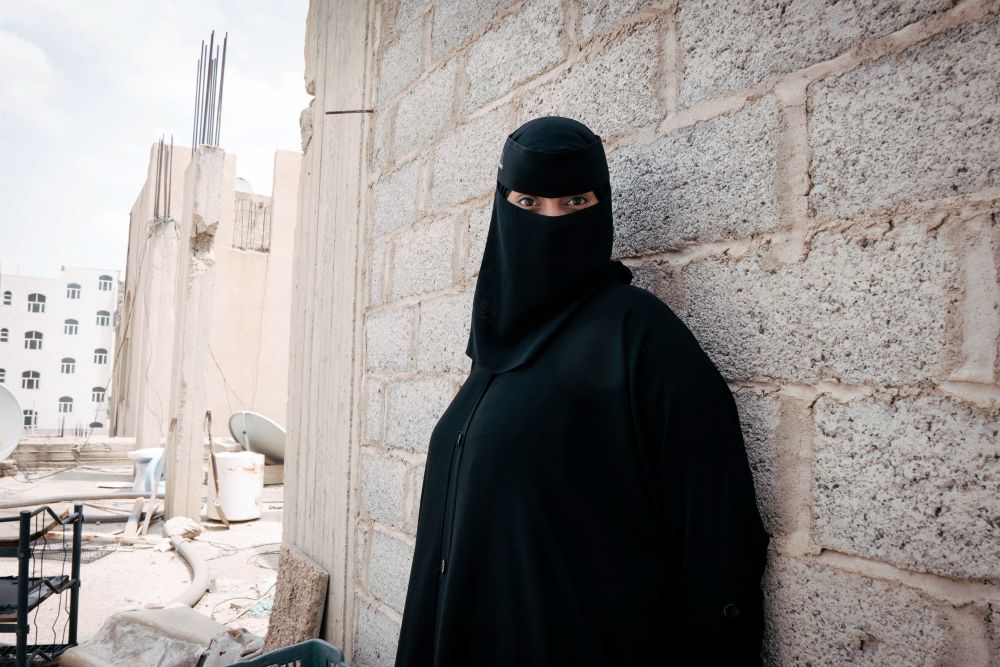
“I learned midwifery to be able to educate others. How to look after ourselves, and to go to hospital for regular check ups to avoid complications,” Randa explains.
Midwives could help avert around two thirds of all maternal and newborn deaths and deliver 90 per cent of all essential sexual, reproductive, maternal and newborn health services. Yet while progress is being made, the Arab region faces a projected shortfall of 60,000 midwives by 2030.
Together with its partners, UNFPA works to scale up quality midwifery education, policies and services, in addition to strengthening midwifery institutions, associations and regulations.
“After my treatment I finished my studies and raised my daughter. The biggest lesson I’ve learned is that I can help all women by offering them good advice,” Randa says.
Pivotal moment
This year marks the significant milestone of 30 years since the transformative Programme of Action was adopted by governments from around the world at the International Conference on Population and Development, held in Cairo in 1994. The Programme of Action forced a global agreement that sexual and reproductive health and reproductive rights are essential to women’s empowerment and overall economic development.
While this 30th anniversary presents an opportunity to reflect on past achievements, it also serves as a call to action. Much more progress is needed. Arab States must prioritize the rights, choices and well-being of women and young people within their development plans.
Every woman and girl deserves the fundamental right to make informed decisions regarding their bodies, lives and families. Investing in the health and empowerment of women and girls fosters resilient and prosperous societies.

